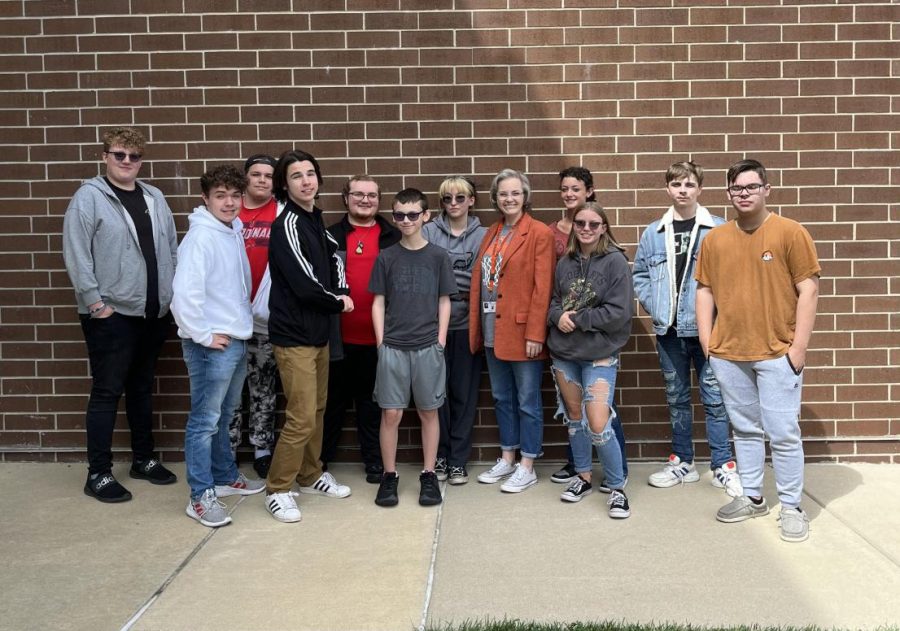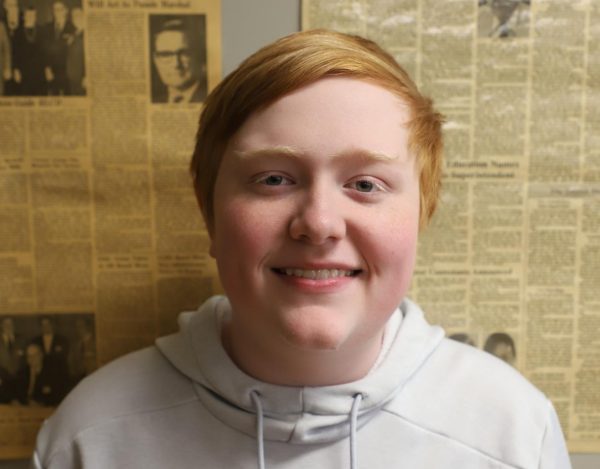Should You Rush in to Learn Russian?
Foreign language has moved beyond Spanish at MV
September 29, 2022
The new Russian class taught by Mrs. Marcy Edwards is now a foreign language offering.
MV students have the opportunity to choose Russian or Spanish.
“I think that right now we are the only Illinois high school offering Russian I,” said Mrs. Edwards.
Should you consider taking this class to begin learning a new language?
According to Ms. Julie Littlefair, Assistant Principal/Student Services, about 45 students have enrolled in Russian this year.
“Spanish didn’t catch my attention while Russian did,” explained Russian student, Damian Derringer, ‘25.
Learning the culture is an added bonus when learning a new language.
Russian student, Brandon Stutts, ‘23, shared that he chose the class due to an “interest in learning other languages and culture itself.”
Prior to enrolling in the class, Stutts occasionally learned Russian by himself on an app.
He’s not alone in having a desire to learn the language.
More than 260 million people around the world speak Russian, making it one of
the most spoken languages in the world … and in space.
According to yuqo.com, Russian is the language of space, so if you have aspirations for being an astronaut, you probably want to take Russian.
Outside of NASA, the Russian Roscosmos is the largest space agency in the world.
Half of the components and systems in the International Space Station are in Russian.
Another benefit of taking the Russian class is to improve a future resume.
Even if the position applied doesn’t require it, being able to communicate in a language as complex as Russian shows determination and skill.
The Russian language is distinct in sound and structure and is a difficult language to learn.
Mrs. Edwards stated there are similarities to learning Russian with learning all languages, but they all have different rules.
“Russian has features that many other languages don’t have, but it doesn’t make as many exceptions to the rules as English does,” said Mrs. Edwards.
For those wondering about digging deeper into Russian than one year of studying would allow, there could be good news.
Mrs. Edwards shared, “I do hope to offer Russian II next year for students to continue; after that, we’ll see.”
As long as student interest and teacher resources continue to be in place, it seems likely that Russian could become a regular option.
“I think it’s great to offer classes that are relevant that kids are interested in. I’m also a bit cautious due to adding another prep for teachers,” said Ms. Littlefair.
The potential for more peers learning the Russian language could be exciting for students like Derringer and Stutts.
Derringer only knows two people outside of his class who speak Russian.
Will more students decide to take advantage of this unique opportunity to learn Russian at MV?


